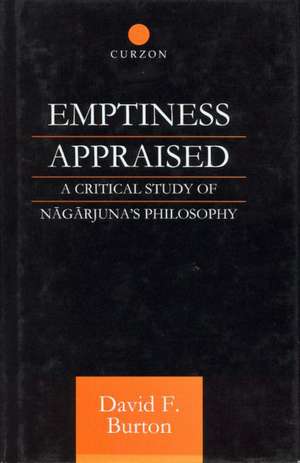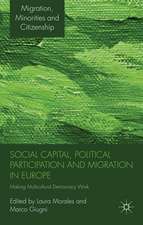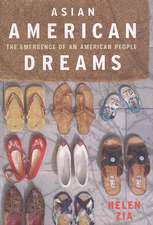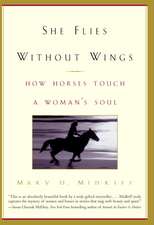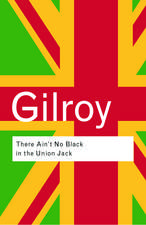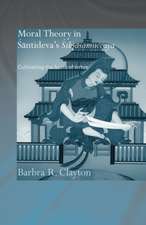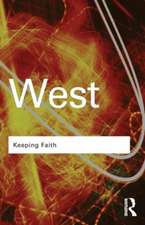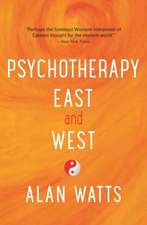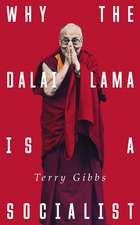Emptiness Appraised: A Critical Study of Nagarjuna's Philosophy: Routledge Critical Studies in Buddhism
Autor David F. Burtonen Limba Engleză Hardback – 22 iun 1999
| Toate formatele și edițiile | Preț | Express |
|---|---|---|
| Paperback (1) | 482.53 lei 43-57 zile | |
| Taylor & Francis – 27 apr 2015 | 482.53 lei 43-57 zile | |
| Hardback (1) | 1006.43 lei 43-57 zile | |
| Taylor & Francis – 22 iun 1999 | 1006.43 lei 43-57 zile |
Din seria Routledge Critical Studies in Buddhism
-
 Preț: 353.69 lei
Preț: 353.69 lei -
 Preț: 348.68 lei
Preț: 348.68 lei -
 Preț: 441.47 lei
Preț: 441.47 lei - 15%
 Preț: 404.88 lei
Preț: 404.88 lei -
 Preț: 426.90 lei
Preț: 426.90 lei -
 Preț: 390.31 lei
Preț: 390.31 lei -
 Preț: 482.74 lei
Preț: 482.74 lei - 18%
 Preț: 1330.16 lei
Preț: 1330.16 lei - 18%
 Preț: 1111.55 lei
Preț: 1111.55 lei -
 Preț: 482.53 lei
Preț: 482.53 lei - 13%
 Preț: 298.10 lei
Preț: 298.10 lei - 26%
 Preț: 820.21 lei
Preț: 820.21 lei - 25%
 Preț: 851.99 lei
Preț: 851.99 lei - 18%
 Preț: 1002.60 lei
Preț: 1002.60 lei - 18%
 Preț: 1059.84 lei
Preț: 1059.84 lei - 18%
 Preț: 1394.91 lei
Preț: 1394.91 lei -
 Preț: 468.36 lei
Preț: 468.36 lei -
 Preț: 486.42 lei
Preț: 486.42 lei - 18%
 Preț: 1010.26 lei
Preț: 1010.26 lei -
 Preț: 482.35 lei
Preț: 482.35 lei - 18%
 Preț: 1005.04 lei
Preț: 1005.04 lei - 18%
 Preț: 1224.24 lei
Preț: 1224.24 lei - 18%
 Preț: 1059.84 lei
Preț: 1059.84 lei - 25%
 Preț: 824.53 lei
Preț: 824.53 lei - 22%
 Preț: 322.89 lei
Preț: 322.89 lei - 18%
 Preț: 1057.40 lei
Preț: 1057.40 lei - 25%
 Preț: 131.51 lei
Preț: 131.51 lei - 31%
 Preț: 767.93 lei
Preț: 767.93 lei -
 Preț: 482.17 lei
Preț: 482.17 lei - 26%
 Preț: 821.46 lei
Preț: 821.46 lei -
 Preț: 483.33 lei
Preț: 483.33 lei -
 Preț: 391.39 lei
Preț: 391.39 lei - 18%
 Preț: 997.27 lei
Preț: 997.27 lei - 18%
 Preț: 1053.95 lei
Preț: 1053.95 lei - 18%
 Preț: 1387.26 lei
Preț: 1387.26 lei - 18%
 Preț: 1052.35 lei
Preț: 1052.35 lei - 18%
 Preț: 1114.98 lei
Preț: 1114.98 lei
Preț: 1006.43 lei
Preț vechi: 1227.35 lei
-18% Nou
Puncte Express: 1510
Preț estimativ în valută:
192.58€ • 201.61$ • 159.35£
192.58€ • 201.61$ • 159.35£
Carte tipărită la comandă
Livrare economică 07-21 aprilie
Preluare comenzi: 021 569.72.76
Specificații
ISBN-13: 9780700710669
ISBN-10: 0700710663
Pagini: 256
Dimensiuni: 138 x 216 x 25 mm
Greutate: 0.63 kg
Ediția:1
Editura: Taylor & Francis
Colecția Routledge
Seria Routledge Critical Studies in Buddhism
Locul publicării:Oxford, United Kingdom
ISBN-10: 0700710663
Pagini: 256
Dimensiuni: 138 x 216 x 25 mm
Greutate: 0.63 kg
Ediția:1
Editura: Taylor & Francis
Colecția Routledge
Seria Routledge Critical Studies in Buddhism
Locul publicării:Oxford, United Kingdom
Cuprins
Chapter One Introduction; Part I Part I; Chapter Two N?g?rjuna and Scepticism; Chapter Three Non-Conceptuality and Knowledge of Reality; Chapter Four The Problem of Nihilism; Part II Part II; Chapter Five The Purpose of Part II; Chapter Six The Ny?ya Pram??a Theory; Chapter Seven N?g?rjuna’s Non-Apprehension of Entities; Chapter Eight Mutually Dependent Existence; Chapter Nine The Attack on Validation: Introduction; Chapter Ten The Attack on Intrinsic Validation; Chapter Eleven The Attack on Extrinsic Validation; Chapter Twelve The Attack on Validation: Conclusion; Chapter Thirteen The Argument from the Three Times; Chapter Fourteen Further Arguments in the Vaidalyaprakara?a; Chapter Fifteen Conclusion;
Descriere
Though Nagarjuna advocates the Middle Way, his philosophy of emptiness nevertheless entails nihilism, and his critiques of the Nyaya theory of knowledge are shown to be unconvincing.
